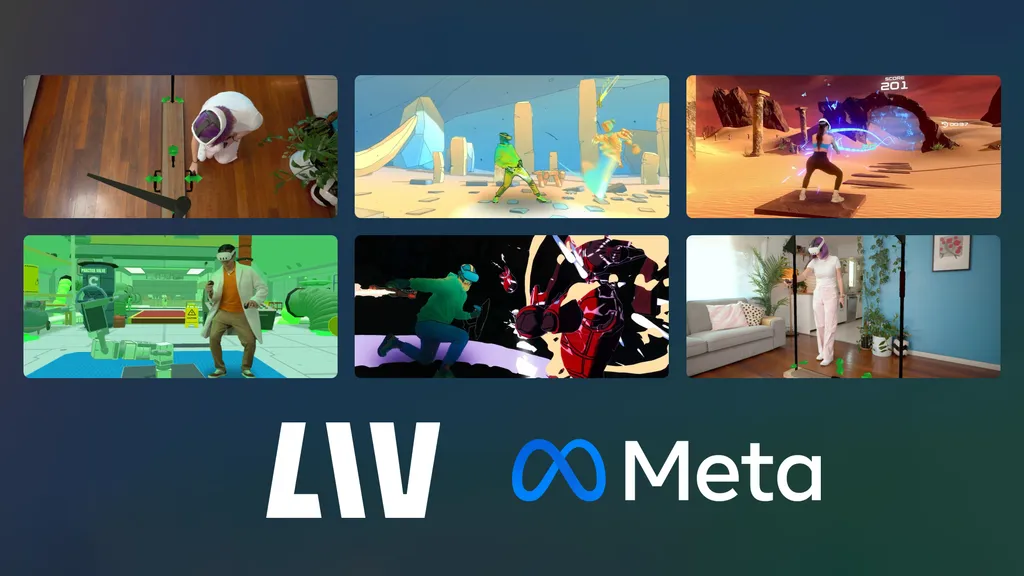Meta is deprecating its own Quest mixed reality capture tool and officially supporting LIV instead.
In this industry "mixed reality" actually has two related but distinct meanings. One meaning is apps and games you use in headsets with passthrough that blend real and virtual. The other meaning, what LIV does, is compositing a real person or avatar into flatscreen footage of a VR game to better represent how it feels to be inside it. The result can be used in trailers or livestreams, and is the next best thing to actually putting a headset on someone's head.
LIV has been helping developers, YouTubers, and streamers create this kind of mixed reality footage since 2016. It was used to create trailers for many HTC Vive and Oculus Rift titles, for example.
Since 2019 Meta has had its own competing Mixed Reality Capture Tool for Rift and Quest too. But today Meta announced it is deprecating this tool and making LIV the official successor.
LIV used in a VR game trailer (Broken Edge)
The initial focus of this partnership will be enabling capturing high quality third-person footage of mixed reality Quest games via a PC and external camera.
LIV already supports capturing full-VR game footage in this way, but Meta has now funded LIV to add support for capturing Quest mixed reality games with this method too.
That funding also brings support for Quest's hand tracking, scene understanding, spatial anchors, and dynamic occlusion so that apps using these features can capture high quality PC-side footage too.
All this is available in LIV SDK 2.0. The beta is available today for Unity, and is coming to Unreal Engine later this year. By the end of the year, the company intends to release a non-beta stable version for both engines.
The company claims "tons" of new Quest apps are adding support for LIV, including Gorilla Tag and Racket Club.
Sometime in the next few weeks LIV also plans to release Quest Creator Kit, a Quest SDK that will allow creators to capture footage standalone on Quest without a PC. First-person footage can be stabilized and have wider field of view than the headset, similar to Meta Quest Developer Hub's cinematic mode, and third-person footage will be supported too.
LIV used in a mixed reality game trailer (Racket Club)
LIV notes that the Meta partnership will not take anything away from its existing PC VR offering, and the LIV PC app will continue to be distributed via Steam. It also says there is no exclusivity contract here, so this work could be used to support other mixed reality headsets when the market conditions to do so make sense.
LIV is also sticking to its promise to "never" charge developers or creators for using its capture tools and SDKs. The startup says it survives on funding from investors such as HTC Vive and Palmer Luckey, and has a commercial license for larger businesses, in addition to the funding it's now receiving from Meta.





























